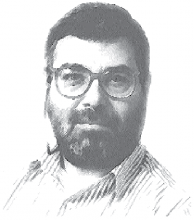You are here
Vladimir Putin and Voltaire
Nov 30,2017 - Last updated at Nov 30,2017
It has been a full century since the birth of the state system of the modern Arab world, largely at the hands of foreign powers, and anyone who wishes to keep track of its turbulent changes today must watch Syria most of all.
Syria is not the most powerful country in the region, given the heft and interventionist impulses of Turkey, Israel and Saudi Arabia, in particular. Yet, Syria should remain the focus of your gaze because in its dilapidated condition, it captures all the main trends that shape our region and that reflect popular sentiments, manifest the exercise of power by many different parties, draw in regional and global powers, and thus impact others in the world.
We watch Syria more closely than other Arab lands in 2017, as we did a century ago in 1917, because for imprecise peculiar reasons that nestle in the heart, mind and genes, more than in rational strategic balances, beloved Syria remains the fulcrum of our identities, national viabilities and future directions.
Just as was the case a century ago, or several millennia ago, this is because Syria’s attraction to foreign armies near and far is more about the strategic interests of those foreign countries than it is about anything intrinsic to Syria, which has become the ghost of the unstable global state system that haunts us all.
It is staggering to see Russia, Turkey and Iran today meeting regularly to determine Syria’s future according to their strategic interests, just as France and Great Britain did a century ago.
So here is a nifty starting point, to note lesson number one, to learn from Syria’s still tumultuous modern history: Defining a sovereign state by the best interests of foreign powers is a recipe for perpetual tension and guaranteed future conflicts.
The British and the French never fully learned this lesson. The Russians, Iranians, Turks and Saudis should ponder this as they gather in Sochi, Geneva, Moscow, Astana, Riyadh and other diplomatic Disneylands to create a new Syria to their liking.
Syria’s current tumult since the early 2011 uprising really started after the end of the Cold War in 1990 that marked the soft opening of this phase of the region’s historical transformation: from a stable of static states rigidly controlled by all-powerful central governments and bolstered by great powers, to fragmenting states where non-state internal and external parties share sovereignty with retreating or contracting governments. (The exceptions are the energy-rich countries, though even they are troubled economically or politically in cases like Bahrain, Saudi Arabia, Libya, Algeria, Oman and Iraq.)
We are in the middle of a great but chaotic historical transformation, not just a random collapse of states or their regional order, as foreign analyses often frame our region’s troubles.
Since 1990, Syria has captured all the main trends that plague our region today. Here is a handy checklist of the most significant ones, for those keeping score:
— Relentless expansion of corruption and military-anchored rule, leading to incompetent economic management of otherwise resource-rich lands.
— Recurring non-violent and militarised citizen rebellions against state authoritarianism.
— Contraction of the central government’s services to citizens and its overall authority, due to a combination of managerial incompetence, political brutality, and financial and legitimacy insolvency.
— Slow hollowing of the integrity of rural and provincial agricultural communities, leading to bloated and chaotic urbanism where social services and job opportunities are woefully below citizens’ basic needs.
— Emergence of tribal, religious, ethnic, ideological and professional organisations that replace the state’s role in asserting citizens’ identity, security, basic services, opportunity and fundamental human dignity
— Steady increase in internal militarised politics and confrontations, leading to sustained warfare alongside episodic violence and terror.
— Parallel increase in external military interventions by regional and global powers that carve out zones of control for themselves inside Syria.
— Creation of ungoverned spaces where insurgency and terrorist groups like Al Qaeda and Daesh can take root.
— Transformation of the national economy into war profiteering and criminal networks that generate a new power elite which coexists with the power of the state and the engaged foreign parties.
— Fragmentation of state authority and territorial integrity, leading to breakaway sovereignties (like the Kurdish region, attempts to create Islamic proto-states like Daesh’s or Al Qaeda’s, or areas controlled by foreign militaries from Iran, Turkey, Russia or the US).
— Resurgence of citizens taking charge of their local communities in many cases, making it more difficult for them to revert to total obedience to a corrupt and authoritarian central state.
— Attempts to reconfigure Syria at the hands of foreign powers more than the will of Syrians themselves.
I draw two main conclusions: a) authority, identity and sovereignty in this Arab-majority land are all being reconfigured by the complex intersection of local, regional and foreign powers whose interests do not coincide and also keep shifting according to short-term gains; b) the Syria situation shows that there is no such thing as an “international community” that can preserve universal ethical and political norms, when a major global power is involved.
Syria is the arena of our bewilderment, but Middle Eastern and foreign powers are the heart of this sad tale.
Outcomes on the ground are shaped by identity power, military might and fighters on the ground, rather than any abstract global values.
When Vladimir Putin’s air force comes up against Voltaire’s humanism, it is no contest. The bombers win.













